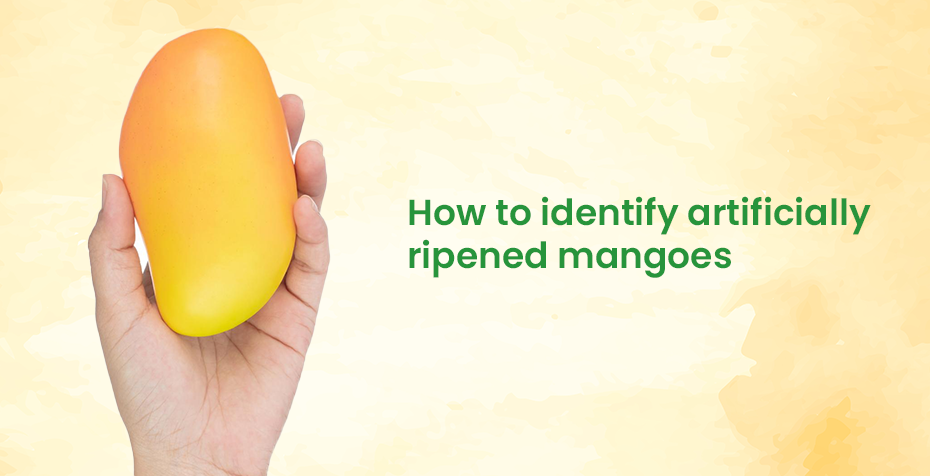Did you know that 90% of mangoes that are sold in the market are chemically ripened? So, when you don’t buy mangoes from a trusted seller, it takes a toll on your health and perhaps you jeopardise your family’s health too.
Fortunately, there are some tips and tricks that work to check if you are making a good buy.
How to check if a mango is artificially ripened?
Okay, so how do you know if you’re only buying ethically ripened mangoes from your nearest grocery seller? Well, to ethically ripen a mango fruit, the best method is to allow the fruit to ripen naturally on the tree or the counter at room temperature. This can take several days to a week, depending on the ripeness of the fruit when it is picked. So, here are some ways we’ve listed for you to check the “true colours” of your mangoes.
Colour:
Artificially ripened mangoes may have an unnaturally uniform colour, whereas naturally ripened mangoes will have a more varied colour pattern.
Smell:
Artificially ripened mangoes may not have a strong, sweet aroma, whereas naturally ripened mangoes will have a strong, sweet smell.
Taste:
Artificially ripened mangoes may have a bland or cottony texture and taste, whereas naturally ripened mangoes will have a sweet, juicy, and flavorful taste.
Season:
Mangoes are seasonal fruits, and naturally ripened mangoes are only available during the mango season, which varies by region. If you’re buying mangoes out of season, they’ve likely been artificially ripened.
Asking the sellers:
You can ask the seller where the mangoes are from and how they were ripened.
Please note that these are not foolproof methods and it’s always better to buy fruits from trustable and certified sellers. Ensure that the manufacturer from whom your seller buys mangoes avoids the
use of any chemicals or artificial methods to speed up the ripening process, as these can negatively impact the taste and nutritional quality of the fruit.

